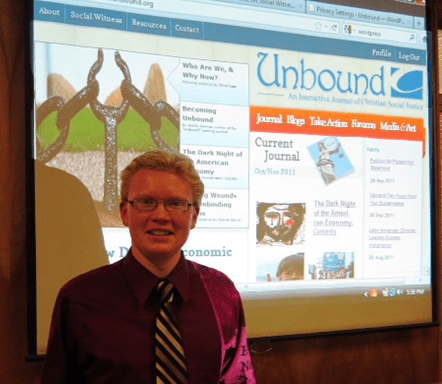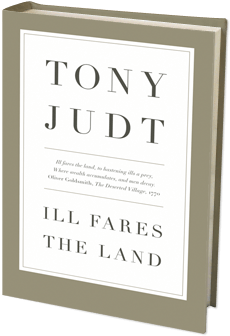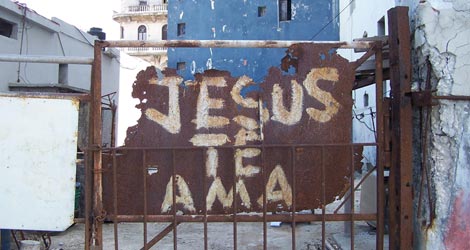The Church’s Call to Witness
Biblical and Reformed values raise significant questions about the way our economy functions, its assumptions and its values. As one Presbyterian study document put it almost three decades ago,
What is clear is that our corporate economic life is now committed to and fosters a new notion of humanity, one deeply antithetical to our Christian convictions.[xxxvii]
If that is true, even if only in part, then we as Christians are called to envision a new economic paradigm, a new way of incorporating biblical values into economic life. While this challenge is great, it is not impossible. Indeed, the knowledge and wisdom it will require could emerge now out of the experience of our congregations and communities in this time of unjust loss and suffering. As a human creation, a dysfunctional economy can be re-shaped by a Christian response of witness and action. What can we do, as individuals, congregations, and denomination?
First, we can acknowledge our responsibilities. We can neither look away from these issues, nor claim a stance of neutrality. As individuals, families, congregations and denomination, we are the economic actors who participate in making things the way they are. Some of us benefit materially a good deal more than others of us from a system that today has produced a level of inequality not seen since the 1920’s. Some of us are experiencing an extent of material loss and insecurity that we never imagined could happen to our responsibly led lives. Some of us have suffered such conditions long before the present recession, particularly in our racial/ethnic communities. As members of one Body, we must look to one another and discover the connections between our different experiences. Answering the question, “Am I my sister’s and brother’s keeper?” requires that we come to know our sisters and brothers, globally as well as locally, and learn how our lives intersect, for better or worse, through our economic choices.
Second, we can study and learn together. Economics is not the monopoly of economists. How a society organizes the economic activity that sustains life will be rooted in the beliefs and values of all its members. Experts can be helpful in explaining how things work and how they came to be this way. They can provide important social analysis that helps us to understand the issues we face. There will be disagreement among them, requiring us to read diverse sources and perhaps frustrating us. At this time, after the successive collapse of speculative “bubbles” in the technology and housing markets, beliefs in the “rational expectations” and “efficient markets” theories have been widely discredited.[xxxviii] In reaction, the economics field is shifting back to valuing the stabilizing role of government stimulus and the security of public investment. But we must remember that experts have no greater moral expertise in these times than do the people of God gathered to discern the will of God. Even if markets were rational, infallible and self-correcting, experts cannot answer for us the ethical question: how should things be?
We understand that our biblical and theological values call us to behave at variance with some of the values shaping our society and its economy. As we seek ways to live our values, we can make use of our church’s social witness policies. We can seek out the organizations working with those who struggle daily to sustain themselves and their families, in our neighborhoods and around the world. We can and should educate ourselves on these issues. Guided by our alternative vision of economic life, we can turn back to experts and ask the question “how?” How can we today, as individuals, as congregations, as citizens and as economic actors in many locations, bring our Christian values into our economic behavior?
Third, we can choose to produce, distribute and consume differently. We do not work to earn money for social status; rather, we work to help our neighbors and give glory to God. We do not see wealth as a reward and a license to consume, but as a social responsibility. We recognize that individuals flourish best in a society that defends the human rights of all and maintains the common good. We have learned to look at any product or service and see within it our sisters and brothers whose labor made it available to us and the sun, rain, and earth from which it came. We can raise moral questions about who produced what we use and under what conditions. We can question and resist the growing inequality in our society. We can reflect on the power of consumerism in our own lives. We can resist the frivolous use of the earth’s resources.
Fourth, we can advocate for public policies that reflect our economic values. The Presbyterian Church (U.S.A.) has a long and distinguished history of serious study about and theological reflection on the issues of its day. As Christians in the Reformed tradition, we understand our responsibility to help shape the common good through our support for democratic government, our engagement in political processes, our social witness to those processes, and our principled advocacy at all levels of government. Therefore, it is appropriate for us to apply these understandings to the current economic crisis and to advocate, as individuals, congregations, and denomination, for those policies and practices of business and government that best embody them. We advocate for such policies with faith that God is working through us in these times to establish more fully God’s oikonomia among us.
____________
Notes
[i] These data can be found in the following resources:
- State jobless rates at http://www.stateline.org/live/details/story?contentId=372388.
- National unemployment figures at http://www.bls.gov/.
- Underemployment report at http://www.npr.org/blogs/money/2009/09/unemployment_spikes_to_97_perc.html.
- Job loss at http://www.epi.org/analysis_and_opinion/entry/tracking_the_recovery_one_in_four_households_has_suffered_a_layoff/
- Pension loss at http://www.epi.org/publications/entry/pm1331/.
- Foreclosures at http://www.epi.org/analysis_and_opinion/entry/weak_job_market_fuels_more_foreclosures/.
- Bankruptcies at http://www.epi.org/economic_snapshots/entry/snapshots_20090408/.
- State budgets at http://www.cbpp.org/research/?fa=topic&id=40.
- Police at Brian Dickerson, “Who can you call if cops won’t come?” Detroit Free Press (10/15/09): A2.
- Food pantries at Judy Keen, “Food banks can’t meet growing demand” USA Today (11/26/08) at http://www.usatoday.com/news/nation/2008-11-25-foodbanks_N.htm.
- Hunger at http://www.usatoday.com/money/economy/2009-11-16-hunger_N.htm.
- Poverty at Lucia Multikani, US poverty rate hits 11 year high” Reuters (10/10/09) at http://www.reuters.com/article/topNews/idUSTRE58943C20090910.
[ii] World Bank. 2009, press release on world poverty, at http://web.worldbank.org/WBSITE/EXTERNAL/NEWS/0,,contentMDK:20040961~menuPK:34480~pagePK:64257043~piPK:437376~theSitePK:4607,00.html
[iii] UNICEF. 2009. Tracking Progress on Child and Maternal Nutrition: A Survival and Development Priority. New York: United Nations Children’s Fund.
[iv] See ACSWP Social Involvement Report to the General Assembly Council 11.20.08, “Christian solidarity in a time of social crisis: Reflections from Detroit on being Church in the 21st Century” at http://www.pcusa.org/acswp/pdf/detroit-soc-inv-report.pdf.
[v] Articles found at the following: http://money.cnn.com/news/newsfeeds/articles/djf500/200911171230DOWJONESDJONLINE000370_FORTUNE5.htm; http://money.cnn.com/2006/08/29/news/economy/wealth_gap/index.htm; http://www.epi.org/economic_snapshots/entry/webfeatures_snapshots_20060823/.
[vi] OECD. 2008. Growing Unequal? Income Distribution and Poverty in OECD Countries. Paris: Organization for Economic Development and Cooperation.
[vii] Nolte, E., and C.M. McKee, 2008, “Measuring the Health of Nations: Updating an Earlier Analysis,” Health Affairs 27(1): pp. 58-71.
[viii] Center for Responsive Politics, at http://www.opensecrets.org/bigpicture/sectors.php?cycle=2008&Bkdn=Source&Sortby=Rank
[ix] John Cassidy, 2010. “After the Blowup,” The New Yorker, January 11, 2010, pp. 28-33.
[x] Kevin Phillips, 2009. Bad Money. Viking Press.
[xi] The Greek root of the English word “economy.”
[xii] God’s Work in Our Hands: Employment, Community, and Christian Vocation (207th General Assembly, 1995), 8.
[xiii] 205th General Assembly, Why and How the Church Makes a Social Policy Witness, p.14.
[xiv] Book of Confessions (Office of the General Assembly, 1999), 218 (7.250-7.251).
[xv] A Reformed Understanding of Usury for the Twenty-first Century, 217th General Assembly (2006), p.16.
[xvi] Hope for a Global Future: Toward Just and Sustainable Human Development, 208th General Assembly (1996): 1.
[xvii] For example, Eugene Fama, a well-known financial expert from the University of Chicago, when asked how government should have dealt with instability within the nation’s large financial institutions, responded, “Let them all fail.” Quoted by John Cassidy in “After the Blowup,” The New Yorker, January 11, 2010, p. 30.
[xviii] Federal Council of Churches, The Social Creed of 1908 at http://www.pcusa.org/acswp/pdf/socialcreed1908.pdf.
[xix] Hope for a Global Future, p. 9.
[xx] Social Creed for the 21st Century at http://www.pcusa.org/acswp/pdf/ga218summary.pdf.
[xxi] Book of Order, G-1.0200
[xxii] See also Economic Security for Older Adults (217th General Assembly, 2006).
[xxiii] Hope for a Global Future, p. 100.
[xxiv] Resolution on Just Globalization: Justice, Ownership, and Accountability (217th General Assembly, 2006), p. 50.
[xxv] John Calvin, Institutes of the Christian Religion, see Book III, chapters VI-XII.
[xxvi] Hope for a Global Future, p. 107.
[xxvii] Mishel, Bernstein, Shierholz, The State of Working America 2008-2009 (Ithaca: Economic Policy Institute, 2009). p. 139.
[xxviii] Richard A. Posner, 2009, The Failure of Capitalism.
[xxix] 216th General Assembly, Transforming Families, pp. 11-12.
[xxx] Ibid.
[xxxi] God’s Work in Our Hands, p. 19.
[xxxii] Ibid.
[xxxiii] A Social Creed for the 21st Century, http://www.pcusa.org/acswp/pdf/ga218summary.pdf.
[xxxiv] Mishel, Bernstein, Shierholz, p. 220.
[xxxv] Ibid., 275. Between 1989 and 2004, 77 percent of the growth in stock wealth went to the wealthiest 10 percent of households. In 2004 households with incomes above $250,000 (i.e., 2.5 percent of all households) owned 44 percent of all stock.
[xxxvi] John T. McNeill, ed., Calvin: Institutes of the Christian Religion (Westminster Press, 1960), pp. 695-696.
[xxxvii] Office of the General Assembly, A Study of the Theology of Compensation: Study One, lines 295-296.
[xxxviii] Economist James A. Posner, quoted by John Cassidy in “After the Blowup,” The New Yorker, January 11, 2010, p. 33.






Unbound Social